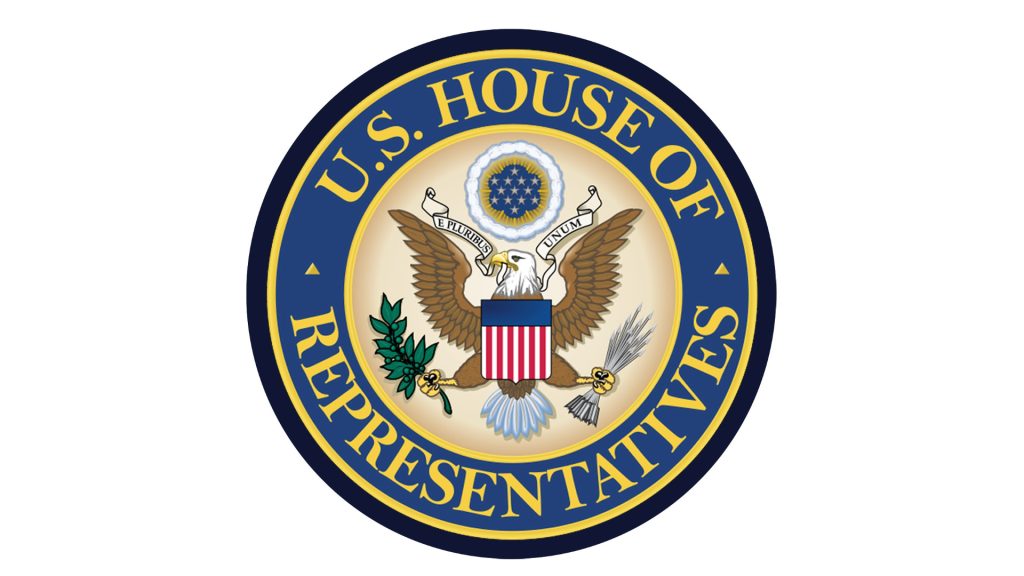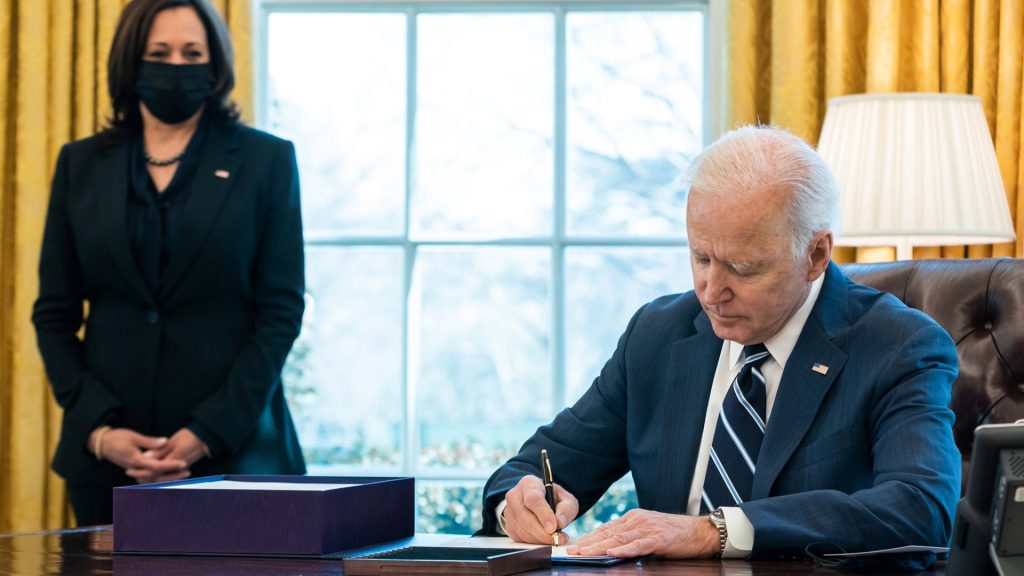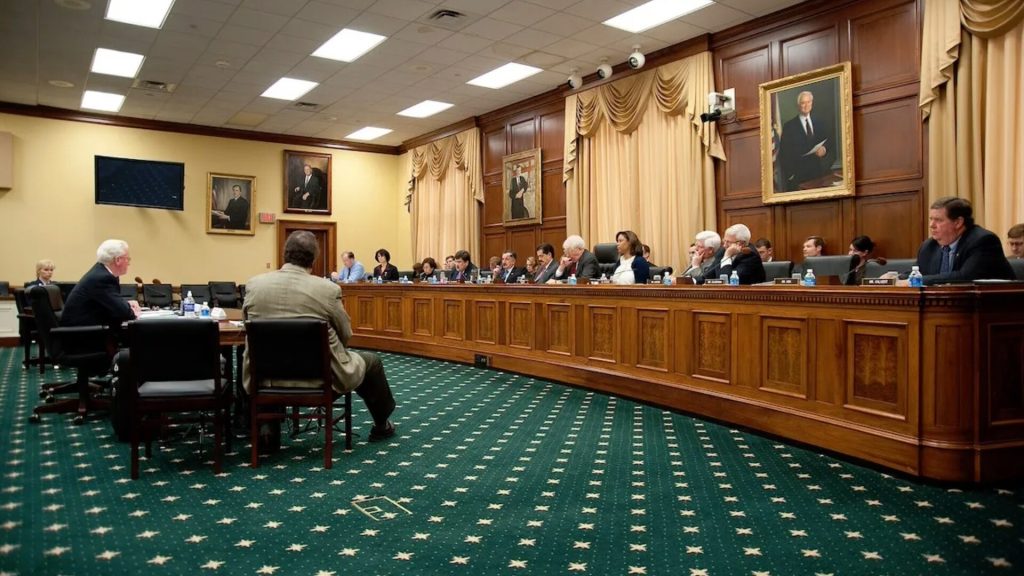Controversies and contradictions are not unusual in the dynamic world of politics. Politicians often find themselves embroiled in controversies due to their actions or statements. A recent one, regarding Rep. Elise Stefanik, has captured public attention. She is accused of taking credit for a federal grant she voted against while serving as the House Republican Conference Chair.
The Controversy Surrounding A $1.8 Million Grant
To put it in context, there was a $1.8 million federal grant awarded to a community in Rep. Stefanik’s district at the center of the controversy. Stefanik said she had played a major role in securing this grant amid criticism against her for making such comment on her part.

Critics claim that Stefanik is trying to take credit for something that had been paid for by one of the bills she voted against.
The Funds Was Meant For Water Development Project
The South Raquette Water District located in Massena, NY within Stefanik’s 21st House District was given this grant. The appropriation of funds was meant for a Water District Development Project for the Town of Massena.

This enables Stefanik to say that she helped fast-track the grant application through the House Appropriations Committee thereby speeding up approval of payment.
Ms. Stefanik Voted Against The Act That Supplied The Funds
Funds from this grant came out of Inflation Reduction Act passed by United States house representatives in 2022 whereby every other republican along with Ms.Stefanik voted against it because they thought it would be bad economically if it were implemented as law.

While still opposing, it was raised as an accusation that she took pride in using money she did not have faith in.
Stefanik’s Claims That She Helped Secured The Funds
Stefanik claimed that she played a significant role in securing the $1.8 million federal grant for the South Raquette Water District in Massena, NY. She stated that she helped fast-track the grant application through the House Appropriations Committee which expedited the approval of payment process for those funds.

On X (Twitter,) “I am proud to announce that I secured $1,857,000 for a Water District Development Project for the Town of Massena in this year’s appropriations process,” Stefanik wrote.
For What Use Has The Funds Been Allocated?
The grant was allocated for Water District Development Project for the Town of Massena. The project aimed to supply public water service to the people of Massena.

The funding will go a long way in improving the local area’s water infrastructure, which is good news for the local people.
Stefanik Takes Credit For Securing The Funds
Despite her claims that she secured it, Stefanik did not vote in favor of the funds, which were part of Inflation Reduction Act that passed through United States House Representatives in 2022 and she with other Republicans voted against it.

With every other Republican, she opposed the bill. This has resulted in headline news from all sources stating so, charging her with hypocrisy over taking credit for funds she voted against.
Stefanik’s Criticism Of The Inflation Reduction Act
In a now-deleted statement posted to her House.gov website, Stefanik criticized the Inflation Reduction Act as a “radical spending bill that will raise taxes and crush hardworking families and small businesses”.

According to her, this bill “wastes $350 billion on ‘Green New Deal’ provisions that prioritize large cities over rural communities”. Yet despite standing on opposite sides of this legislation, she has been accused of laying claim to its benefits.
Public Reaction To Stefanik’s Comments
Stefanik’s claim of securing the grant was met with a significant backlash on social media. Many users pointed out inconsistencies where they argued that one should take blame for spending their votes on things you were later claiming ownership over online.

Consequently there was quick growth of discussions around this matter as more users shared their opinions about it.
Criticism from Public Figures To Stefanik’s Statement
Ted Allen, a member of Food Network and former tennis player Andy Roddick were some of the public figures that also noticed this controversy. Allen made it clear that Stefanik was “flat-out lying” because she had stood against a motion to fund the project.

The same feeling was echoed by Roddick who said that Stefanik’s voters may not know that she had voted against money for the project.
Rep Has Been Involved In Previous Controversies
This is not her first time caught up in such a controversy. She has been accused before for claiming credit for funds she voted against.

For example, she praised the money hospitals received from the American Rescue Plan while opposing this bill.
What Was The American Rescue Plan?
The American Rescue plan was a $1.9 trillion economic stimulus package passed by the 117th United States Congress and signed into law by President Joe Biden in March 2021 designed to hasten recovery of the United States from the impact of COVID-19 pandemic and ongoing recession.

In spite of its various advantages for the public, Stefanik opposed this bill but used the same funds later.
Stefanik’s Adviser Justifies Her Actions
In defense to criticism, her adviser justified what Stefanik did. The adviser said that being part of House Appropriations Committee enabled Stefanik to advocate for it even after voting against it.

According to The Adviser, these efforts were very crucial in acquiring these funds promptly as well as successfully going through their granting process.
The Contradictory Nature Of Politics
Thus, Stefanik’s case highlights how political dynamics are often complex and contradictory. It also brings into question whether politicians are answerable or transparent when it comes to being credited on legislative success stories.

Finally then, this incident comes as an important reminder that politics means checking facts and thinking critically.
How Will This Contradiction Shape Future Debates?
It is yet not known at this point how such controversies will influence future public discourses amidst changing political trends across times? Shall politicians become more wary about making claims or must we expect repeated occurrences of such sorts?

Time will tell us all we need to know in due course; until then however, political communication can be learnt best from following such controversies like a case study.






